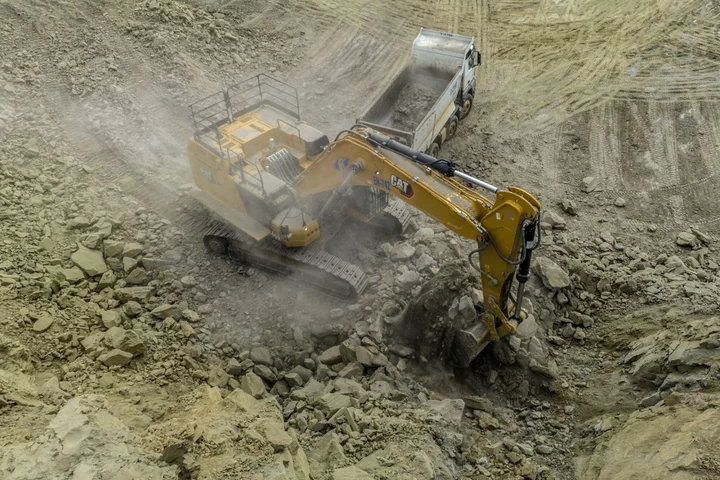Exxon Mobil Corp. plans to begin producing lithium in Arkansas, marking an entry into the provision of a key component of large-scale batteries and the first time the oil giant has invested in a major non-fossil fuel extraction project in recent history.
Exxon acquired rights to 120,000 acres in the Smackover formation in southern Arkansas and plans to begin output of lithium by 2027, the Spring, Texas-based company said in a statement Monday. The project will make Exxon a “leading supplier for electric vehicles by 2030,” it said.
Exxon is one of several oil and gas companies looking to expand into lithium, which would help provide a foothold in the rapidly growing market for energy storage. The metal’s use in electric vehicle batteries would also help mitigate losses from the expected reduction in use of gasoline and diesel demand over the coming decades.
“Lithium is essential to the energy transition, and ExxonMobil has a leading role to play in paving the way for electrification,” Dan Ammann, president of Exxon’s Low Carbon Solutions division, said in the statement.
The oil giant has held talks with Tesla Inc., Ford Motor Co., Volkswagen AG and other automakers this year as it seeks to build a business around the metal, Bloomberg News reported in July, citing people familiar with the matter.
Lithium is not geologically scarce like fellow battery metals cobalt and nickel, but mining high-grade quantities at scale is a major challenge. Exxon Chief Executive Officer Darren Woods has said producing it from saltwater such as brine could be both cheaper and greener than mining, currently the most common production method.
While efforts are at an early stage, Exxon believes its expertise in drilling and processing liquids can give the company a competitive advantage in obtaining lithium from underground saltwater deposits. The opportunity to produce lithium from the Smackover Range in Arkansas is looking “more and more promising,” Woods said last month.
Read More: Exxon Sees Lithium From Saltwater as Greener Than Mining
Spot lithium prices have tumbled this year due to a slowdown in China and concern over the affordability of electric vehicles in the US and Europe. Still, the long-term picture looks healthy. BloombergNEF expects global demand for lithium to grow almost five times by the end of the decade.
Occidental Petroleum Corp. and SLB, the world’s biggest oil-services provider, also have said they’re exploring brine-based lithium production.









